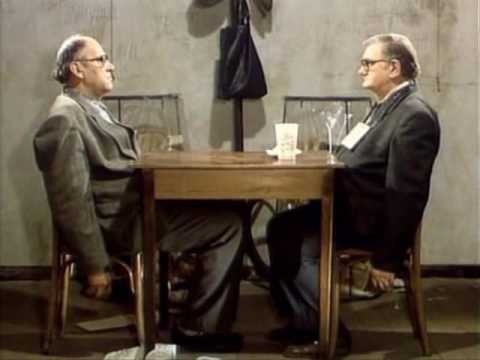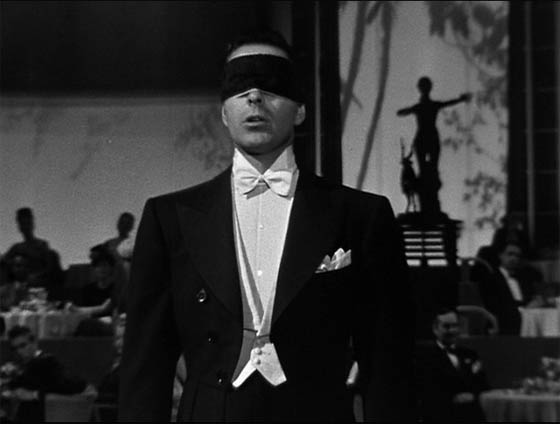” “any alliance between the left and global capital ends up favoring the populist right.”
Fabio Vighi
The narratives of the Spectacle. What you see today on the corporate news front is a reliance on the most reductive of discourses. What’s interesting is how this reduced bit of story-line, scenario creation, is filled up with a sort of ventriloquists performance. Or its like an old crystal ball mind reading act (cue: Screening of Nightmare Alley). There is a processing of narrative that demands the simplest sort of assumed psychological foundations. By which I mean, the perceptions of the political spectacle often seem to include personalized mind reading on the part of the viewer. “Oh, he doesn’t mean that, he doesn’t mean to have those drones kill innocent people, but he has to do things he doesn’t want. I know he must want to change things next term”. And so on. Our own desires are never our own, says Lacan. They belong to that big ‘Other”. Well without getting into a critique of subjectivation, or entangled in Lacanian vocabulary, the political performance, the invented drama of the US political process, is almost entirely built upon the most basic cartoon level characters and plot. Romney is evil, for the liberals, and for the right, for the impoverished white working class, Obama is evil. Now, the actor portraying Romney, however, has been unfortunate, because not even his own party much enjoys him. But thats a whole other story.
What is important is that political actors (Obama for example) are both dummie and ventriloquist. They are also puppets, and puppeteer. This is the reality of the primal split (to be Lacanian again) as it is played out on the political stage in the US.
The public does not want to think too long about dismembered limbs, or screaming children….and one way is to perform a narrative — shows like Dexter come to mind, but probably any cop franchise or horror/slasher film does the same thing — a narrative to make separate a narrative that cleanses the reality (it is all ‘just’ special effects and CGI and fake blood). Our split, that between subject and the real, or substance, is played out in this endless loop of kistch narrative. The reality is that Dexter occupies the same degree of importance or reality as Obama’s speeches on terrorism. Or on healthcare. The Supreme Court are read as cartoons. Puppets and puppeteers. Who is speaking? How many masks must be pulled away before we reach the real face? Well, of course there is no real face. There is only the illusive glimpse, for those even looking, of the forgotten traumas of childhood. So, perhaps the narrative, at least the performed narrative, has as its purpose to create a ‘space’ for our own otherness. For the desire which is not ours, but the other’s desire. And another way of saying this is that this theatrical space is there so we may witness our story, or the one we mimetically write ourselves, to be seen. Seen by whom? Well, by us. For in the end, it is always our own story.
Its important to make clear (if thats what I’m doing) that the theme of the narrative really doesn’t matter — so it needn’t be a slasher film, or a war melodrama — it can just as easily be a romantic comedy. The meta-narrative remains the same.
“Its all the same, just a little bit different”.
Jean Luc Godard
” Ultimately, there is no difference between my self-alienation (the
fact that my unconscious prevents me from accessing the truth about myself) and my
alienation in society, and the point is that precisely this shared impasse allows me to
communicate (though, of course, communication never fully succeeds). Social and cultural
exchanges are correlative to our attempts to deal with the impossibility of true
communication, which is why the fundamental limit of the human condition is also its
condition of possibility.”
Fabio Vighi
However one interprets this, the relevant aspect has to do with understanding (or lack) of ourselves as political subjects. Or, how the spectacle performs itself and how the viewer relates to it. For the modern viewer — the post modern subject in a sense — is always confronting its own solipsistic sense of identity. In turn, there is the question (given this 21st century autistic cul de sac) of deciding on what ‘matters’. The political theatre of US elections grinds out its propaganda on a 24 hour a day news cycle, but it also is making clear what parts of this PR assault are supposed to “matter”. The culture industry cues “serious” tropes… but it knows you know its not ‘serious’. There is a material suffering out there — its real, and its kept out of sight, if possible, by the corporate purveyors of opinion. Still, its there, like a ghost that haunts the theatre. A ghost that whispers to its audience, ‘all is not as it seems”. The question is, who is listening?
Hence the feeling, the disquieting sense of the inauthentic that often oscillates at the edges of political debates. For the role of this master narrative is to posit certain mechanisms, almost logical trap doors, for the subject to flee to — (desire of the Other’s desire)… mechanisms that provide the escape from those dismembered body parts, those charred remains of drone attacks. The political subject remains mute. For how can he speak. How can he have a voice. The spectator — is watching his own puppet theatre. In this theatre, this post modern “mystery play”, there are the stock characters: good for some, bad for others. Socialist Kenyian closet Muslim, Mormon richy rich anal sadistic closet centerist. Oh dear what will happen to the Supreme Court. Oh dear, what will happen to heterosexual marriage. Whatever. The tropes are endless. The Lacanian architecture of desire is such that what matters is in fact what I think the other desires of me, or what the ‘Other’ desires me to desire. Or….and on it goes. Our fantasies are mimetic placeholders in our puppet theatre. Behind it all, the traumas of capitalism. The punitive expression of that basic alienation, the szchoid fetishized commodifying of everything.
What is not part of this master narrative is how a real economy is predicated upon the relationship established under colonialism. Kept in place by a debt-credit dynamic, where local economies need to be destroyed (this exists domestically as well in another respect). Debt relations create and maintain poverty. Its the financialization of everything. This matters in the current discussion because language is (or is part of) political economy. It is also part of our self alienation. This leads to a number of topics; instrumental reason, the attention economy and the valorizing of profit even where nothing has been produced. The master narrative never arrives at a summation, for the post modern post Newtonian world now must be read in new ways. The certainties of perceptual interrogation have evaporated under the weight of new existential modalities. In other words, the poor have been deprived of even their own script, now. The new managerial class has nothing to manage. Enter the Spectacle.. beset with a more exposed nervous system, its own understanding of itself, of its propaganda, has eroded to a place where repetition has sped up to critical mass — exchange value and use value have lost agency. Sign codes have been consumed…by themselves in a sense. Nothing registers, and everything registers. Ventriloquist and dummie both. The manufacture of “meaning”, politically, creates a kind of vertigo. Collective attention is being strip mined — and under this, the truest intelligence is the adaptability of the slave.
This topic requires a more exhaustive analysis; but the point for this entry is the Spectacle, the master narrative, is built with simulacrum, and if our unconscious is structured like language (Lacan), our language is structured like a factory (Beller) — the kitsch narrative, the “present” is without history, and only exists to be consumed anew each day. The manufacture of “caring”, of “fear” and of “kistch compassion” is all just a generalized mass deception.
It may be good to conclude with Gabor Mate….for the topic of addiction intersects here rather seamlessly.




Gabor Mate’s linking of addiction/depression and anxiety with “the healing power residing in us all” and the connection to the physical body rarely occurs in mainstream medicine because it does not require capital, money, profit. It requires stillness, meditation, work that matters and genuineness of self. Stillness. Letting the images, words, creativity come from the unconscious mind. Dis-alienation.
Pinoquio, “I want to be a real boy”, came to mind. Great connection to Gabor, what can one say, other than he’s so frigging right on.
Thanks,John